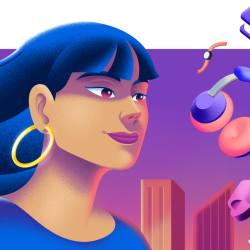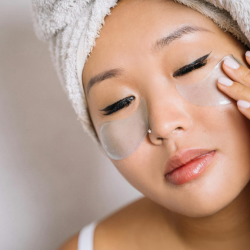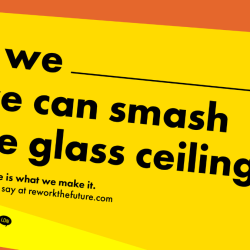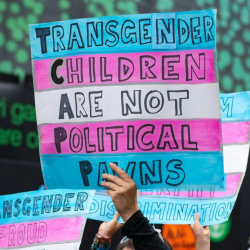As I progress in my career, I am becoming increasingly aware of how much representation plays a role in how we feel about ourselves and consequently how well we are able to do our job. A mathematician turned Decision Scientist, I am no stranger to being the only woman in the room, and while my parents have brought me up to be a feminist, I have to take active steps every day to unlearn and free myself from the gender roles that patriarchy imposes on all of us.
A big catalyst in this transformation was following gender non-conforming activists such as @alokvmenon, @raindovemodel and @mx.deran (to name but a few) who have opened my eyes to a new way of being. No one can deny that sexism and transphobia exist, but the extent to which gender shapes our lives is unrecognised by most. Once you open that door of questioning though, it becomes clear that it is not enough to improve representation, but that a radical new way of thinking and communicating is required. This is not only about the inclusion of non-binary people and protecting trans lives — it is so much bigger than that: patriarchy holds us all back, whether we want to acknowledge it or not. Toxic masculinity means that British men are three times more likely to take their own life than women, and rampant misogyny is the reason that 97% of women in the UK have experienced sexual harassment.
So what can you do to start unlearning patriarchal norms and values?
The best way is to start small, take baby steps and make incremental changes as you become more comfortable with being uncomfortable. For me, language is a great place to begin. At RAPP, as part of Women’s History Month, we invited our employees to “flip the script” and de-gender their language. A good example of this is to stop using gendered terms such as “chaps”, “guys”, “ladies and gentlemen”, and replace them with more inclusive words like “team”, “folks”, or “everyone”. In the same spirit, try using “they/them” if you are talking about people you haven’t met instead of assuming gender through name or profession.
The Omniwomen 2022 event confirmed that my approach works — I was introduced to the term “neuroplasticity” which refers to our brain’s ability to rewire itself. Dr Afua Basoah explained that attempting to do something new on a regular basis improves the connections that our brain creates and this in turn makes us more resilient to uncertainty. Sam Conniff who calls this “uncertainty tolerance” talked about how we can prime our brain to process external signals and filter out important information. By engaging with feminist discourse, both through listening to people’s lived experiences and reading relevant literature, you can become more attuned to how humans of different backgrounds experience and move through the world, shaped by the environment they were born into. Here, it is important not to only focus on gender, but to take an intersectional approach which recognises other aspects of identity, such as race, sexuality, physical ability or socio-economic background.
It therefore stands to reason that, in our patriarchal society, women are not just treated differently, but that we all — women and men — have internalised these ideas ourselves, and actually play a large role in upholding them. In my case, this means that I place a lot of pressure on myself to perform exceptionally, to prove that I “deserve” my place on the table, while trying to be perceived as agreeable enough to not jeopardise my job. Working in a team where my colleagues make an active effort to create a more inclusive atmosphere removes the “need to feel any pressure to be or perform as anything other than myself”, as Joshua Allen [@joshuaobawole] beautifully put it. Productivity and creativity improve and everyone benefits.
Gender non-conforming people show us that there is a better way of living, and that moving beyond the gender-binary is basically the next cultural revolution. This can only happen if we collectively take small steps to get there. Showing empathy and engaging with another through a lens of compassion and recognition of each other’s individuality is the key to slowly moving towards this better world [listen to ALOK explain this here or here].
So, have a go at de-gendering your language, reap the benefits — and don’t forget to PROTECT TRANS PEOPLE, as we owe most of our progress to them [donate here].
Featured image: Ehimetalor Akhere Unuabona / Unsplash



































